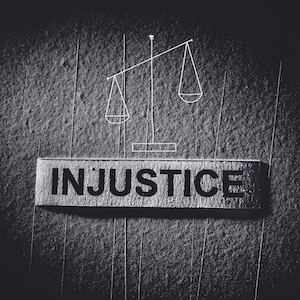Ex mero motu means “of one’s own accord." At trial, there may be times the Court may be required to intercede even without a formal objection by the Defendant or the criminal defense attorney in North Carolina.
Some errors are so problematic and prejudicial to the fair administration of justice that the Judge may be required to step in and take corrective action. And in some instances, a Motion for a Mistrial and Order Directing a Mistrial may be the appropriate remedy.
When is an Improper Argument to the Jury Reversible Error? The NC Supreme Court has opined that in the instance of “extreme impropriety” by the State (the prosecutor) the Superior Court Trial Judge may be required to intervene.
Guilty or Not Guilty – Who Decides?
One might reasonably ask, “How extreme is too extreme?” The answer tends to be, “When it changes the verdict.”
Some fact patterns are such that an improper argument or improvidently admitted testimony or evidence will not make a difference.
Put simply, even without the error or mistake, the jury would have come to the same conclusion.
Can the Trial Court Correct Errors? When and if the Court believes there is a problem during the trial, it may be necessary for the Judge to intervene and correct the errors.
What is an Indictment?
That may include things like:
- Issue an Order or Instruction to the Finder of Fact (the Jury) to ignore a piece of evidence or disregard testimony or an improper argument
- Strike testimony
- Grant a Motion to Dismiss and/or declare a mistrial
It is not an abuse of discretion to fail to intervene if the trial Court did not believe an argument or comment prejudicial as “originally spoken.”
NC Criminal Laws - Mistrial
![Decision to Plead Not Guilty]() Even if the prosecutor’s arguments are universally condemned or undesirable, that may not be enough to reverse a guilty verdict. The Court may admonish and even sanction the offending party.
Even if the prosecutor’s arguments are universally condemned or undesirable, that may not be enough to reverse a guilty verdict. The Court may admonish and even sanction the offending party.
That does not necessarily mean the charges will be dismissed or the case thrown out because of improper arguments or commentary.
For a conviction to be overturned, there must be a considered review and determination of whether:
- The prosecutor’s argument infected the trial
- To such extent that it would make a conviction unfair
- That amounts to a denial of due process of law
The defendant carries the Burden of Proof on appeal to show:
- A “reasonable probability” that
- The Jury would have reached a different Result - Not Guilty Verdict
- But for the improper argument; and,
- The Court abused its discretion, thus committing a reversible error, in failing to intercede ex mero motu
NC Rules of Court – Protection of Due Process by Procedure One protection in all Superior Court trials in North Carolina, whether they be for a misdemeanor or felony or even a speeding ticket or DWI charge in NC, involves the Pattern Jury Instructions.
The Criminal Pattern Jury Instructions or "PJI" in North Carolina do more than explain the prima facie elements of a criminal offense.
The instructions, which are almost always read verbatim by the judge to the jury, explains things such as the:
- Definition of Reasonable Doubt
- The State’s Burden of Proof
- The Defendant’s Decision Not to Testify
- The Presumption of Innocence
In some instances, the Judge may choose to also provide a written copy of the Pattern Jury Instructions to the Jury.
Helpful Information About Criminal Charges  In all criminal matters, the right to plead not guilty, to remain silent, and the right to hold the State to its Burden of Proof is fundamental to a fair trial. The fact that the person accused of criminal charges chooses not to testify or not to present evidence or to plead not guilty cannot be considered as evidence of guilt.
In all criminal matters, the right to plead not guilty, to remain silent, and the right to hold the State to its Burden of Proof is fundamental to a fair trial. The fact that the person accused of criminal charges chooses not to testify or not to present evidence or to plead not guilty cannot be considered as evidence of guilt. Powers Law Firm PA Home
Powers Law Firm PA Home














 Even if the prosecutor’s arguments are universally condemned or undesirable, that may not be enough to reverse a guilty verdict. The Court may admonish and even sanction the offending party.
Even if the prosecutor’s arguments are universally condemned or undesirable, that may not be enough to reverse a guilty verdict. The Court may admonish and even sanction the offending party.